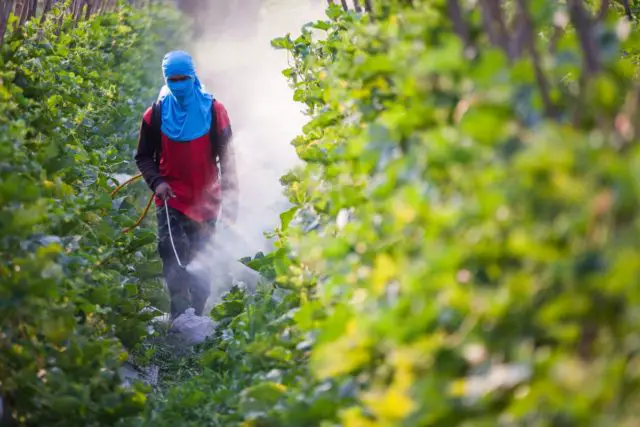In recent weeks, business chambers in Costa Rica have irresponsibly pressed for Costa Rica to allow the use of more agrochemicals without a toxicological evaluation to overcome the health crisis. Similar echoes are heard in other Latin American countries.

This is a false premise, since it only protects the pockets of importers of these poisons, which have led to 90% of the food we consume daily being contaminated with pesticides. In addition, it is important to know that the pesticide registry is being reviewed by the Costa Rican Constitutional Chamber since 2019, thanks to the fact that different environmental organizations such as the Ecological Federation (FECON) and the Movement for Organic Costa Rican Agriculture (MAOCO) have attended the constitutional court to report abuse in the incorporation of pesticides without technical analysis.
There is also an Appeal of Amparo supported by hundreds of nucleated beekeepers in the National Chamber of Beekeeping Promotion (CNFA) against Neonicotiniodes (agro-poisons with harmful effects against bees). Therefore, asking for more pesticides and their use without adequate toxicological evaluation to overcome the crisis threatens the actions of the Judiciary itself.
This request to bring more pesticides not only puts at risk various sectors of the economy and society that no longer supports more pesticide contamination. We are speaking here of schools fumigated daily, of the thousands of people sick from exposure to pesticides and who do not receive any compensation from the companies responsible for the loss of their health or the effects on human health of consuming water and food contaminated with carcinogenic pesticides every day, or, of the thousands of families without access to water, because it is being captured and used for monoculture irrigation.
These are some of the many most visible impacts of agro-industry and agro-poisons, but I want us to think now about tiny beings that have an indisputable contribution in countries dedicated to agriculture: bees. According to the Food and Agriculture Organization (FAO) the contribution of pollinators such as honey bees is equivalent to 20 times the value of the honey they produce. For a country like Costa Rica that has about 40 thousand hives, which produces about 1,200 metric tons of honey, that is equivalent to about ¢ 6,000 million for its market value.
If we do the multiplication that FAO follows, we will find that honey bees provide pollination services for at least ¢ 120,000 million, that is, about US$ 210 million to the national economy every year. In comparison, it is estimated that Costa Rica imports US$ 160 million in agro-poisons.
Regionally, in Central America, according to FAO data, there are some 400,000 hives that provide pollination services valued at up to US $ 1.6 billion annually, which are at risk from pesticide abuse in the same way and that all Central American governments should understand the importance of these insects for the future post-Covid-19.
Although clearly the value of bees is greater than their economic contribution and their life cannot be commercialized, we do this exercise since apparently this is the only language that governments understand. This contribution from poorly accounted pollinators gives us insights into the importance of defending honeybees against the abuse of pesticides and their vendors for the national economy.
But despite this importance, it seems that the government only has ears for those who propose toxicity and labor exploitation. In the case of Costa Rica, only pesticide importing companies incorporated in the Union of Business Chambers (UCCAEP), receive at least US$ 30 million annually in tax exemptions according to the Ministry of Economy, Industry, and Commerce (MEIC).
Today, it is time to decide where the country wants to go: towards an agriculture-economy way of life or one of death. There is an urgent need to protect pollinators, beekeeping and, thus, the Costa Rican economy and to ignore venom sellers.

